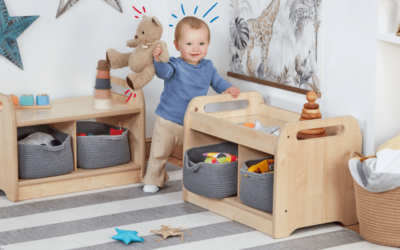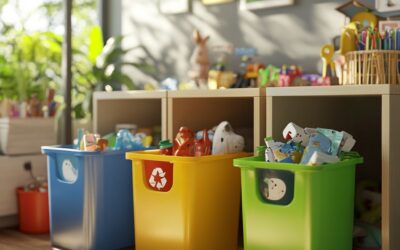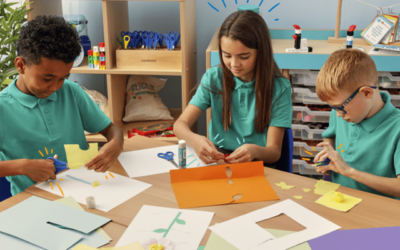Nature based maths activities for EYFS
Forest schools have become ever increasingly popular over the past few years and during lockdown many of us created a deeper connection with the natural world and enjoyed lots of adventures in the wild. We can incorporate the principles that underpin forest school teaching within our childcare settings even without a forest or woodland in your backyard.
When looking at Maths, it can be linked with natural resources in a way that is reflective of a forest school approach, but can also always be done on a smaller scale with a play table or play tray. When in nature we can gather leaves or twigs to count and compare. Indoors, we may have resources to hand that we can count, add, subtract and compare, or bring home the leaves and twigs from your woodland adventures.

Supporting learners in their play
You should always look to the child for cues as you facilitate their play, ask open ended questions and allow them time to problem solve themselves before you intervene. They might like to use number trays when they are confident learners, to see numbers represented with counters, petals or pebbles. We support cognitive processes and look to the child for their next steps and their interests. This is reflective of the EYFS, as written observation is no longer needed, but knowing your child is the focus. We foster their creative juices and can include natural resources and be in tune with nature and its textures as we learn numbers, counting and about shapes and measures.
Younger children may not yet have linked names with the number symbols, this is a great opportunity for you to use digits in the environment – create a number tree, use mathematical terms, show groups that are bigger or smaller, or weave numbers into frames. These are great ways to engage children, it entices them to play and keeps attention for longer periods of time.
You may also want to include:
- Numbers frozen into ice-cubes
- Extra natural resources such as acorns or conkers
- Tools such as scoops and tweezers.

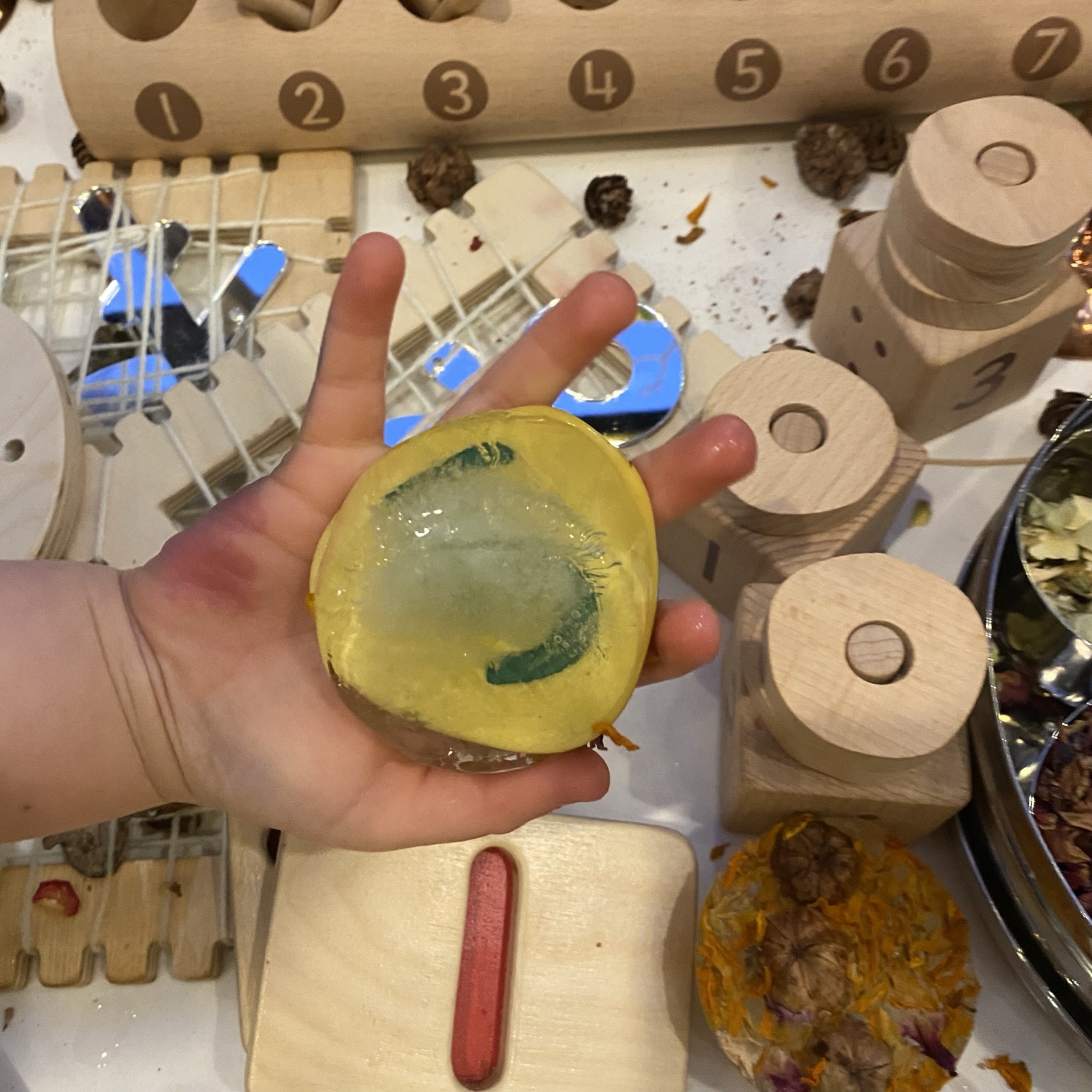
Creating the perfect atmosphere for learning
I like to create activities based around the principles of hygge which is a feeling of warmth and cosiness, and lots of outdoor enriching activities to make the heart and mind happy – creating contented children who are in touch with their feelings and the environment. Give the curious child a sense of awe and wonder in everything that they do.
Given time and space the atmosphere can often be calm and meaningful and any learning opportunities increased as children interact with us and their peers. We have to be confident in our teaching and reflect upon the outcomes after a session or activity. Often repeating and elaborating upon them gives natural progression of learning. It is important to remember that maths is something we will use forever and becomes deep routed, making maths fun at this early stage will foster a love of numbers and learning
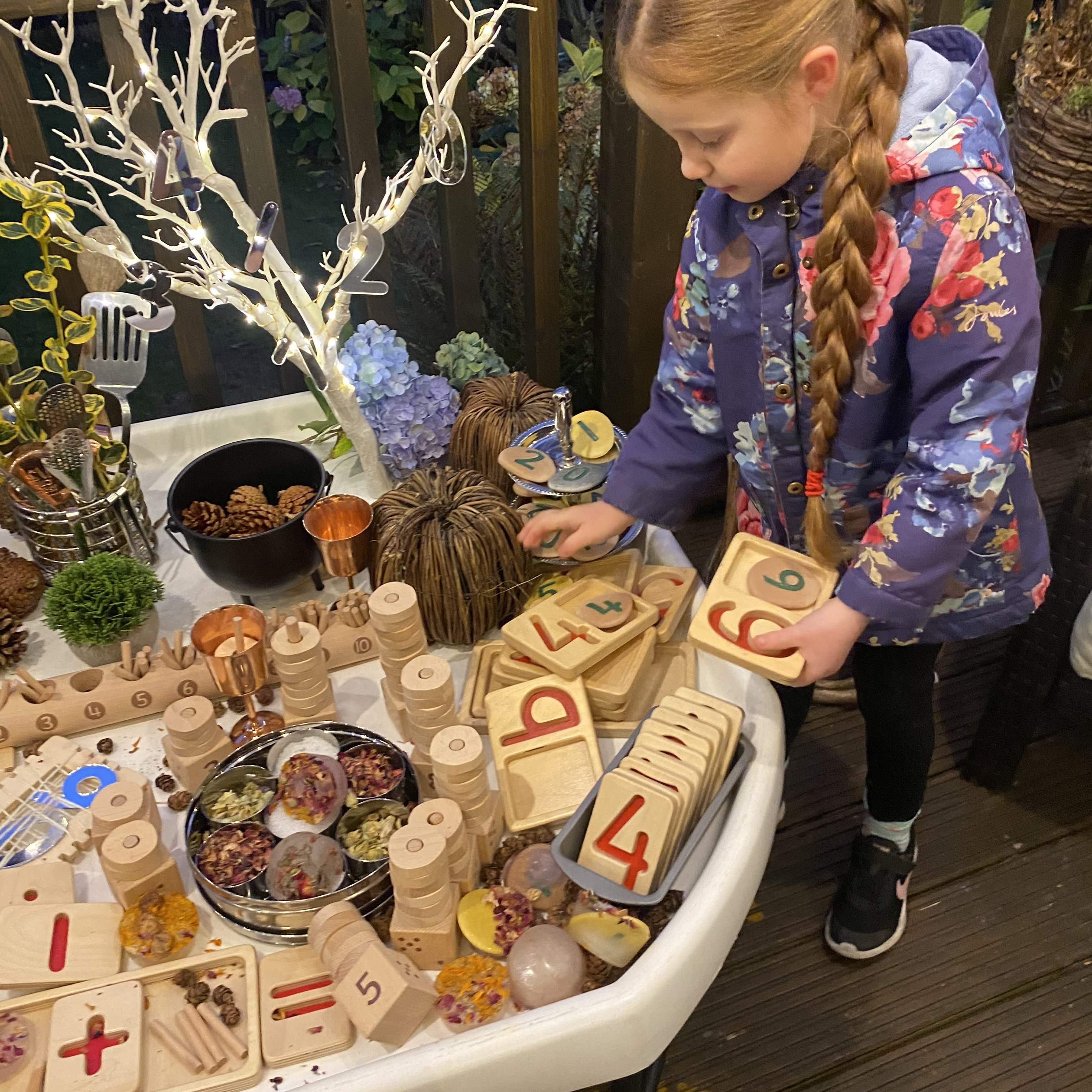
Extend the learning
You as the adult or play leader can increase a child’s knowledge further by questioning and discussing when intervention is needed to move learning forward. You are their most important teacher at this young age and they will learn lots from you. You can also extend the play by going on a number walk in a park or looking for big or small vehicles when out on a road trip. We can use maths in every part of our day.
This blog was kindly written by Jennifer Wooldridge, a registered childminder and has worked with children in this role since 2011. She uses her secure knowledge of child development to plan a curriculum that ignites children’s interests and challenges their curiosity. Find her on Instagram @mamasden
Related blogs
Your Guide to the School-Based Nursery Capital Grant
What is the School-Based Nursery Capital Grant? For schools aiming to enhance their nursery facilities, the School-Based Nursery Capital Grant provides a simple funding solution. This grant is open to eligible state-funded primary schools in England that...
What Goes In, Must Go Out
Creating a Circular Economy in Your Nursery Author: Nick Corlett Sustainability Manager at LEYF Sustainability is more than a trend—it’s a shared responsibility, and the nursery is the perfect place to nurture these skills. Every day...
Top tips to create a SEND-Friendly Primary School Classroom
Author Lindsay Robinson Lindsay Robinson has been a primary school teacher for 23 years and is passionate about achieving the very best outcomes for children through quality first teaching and experiences. I remember receiving very little guidance during my teacher...
